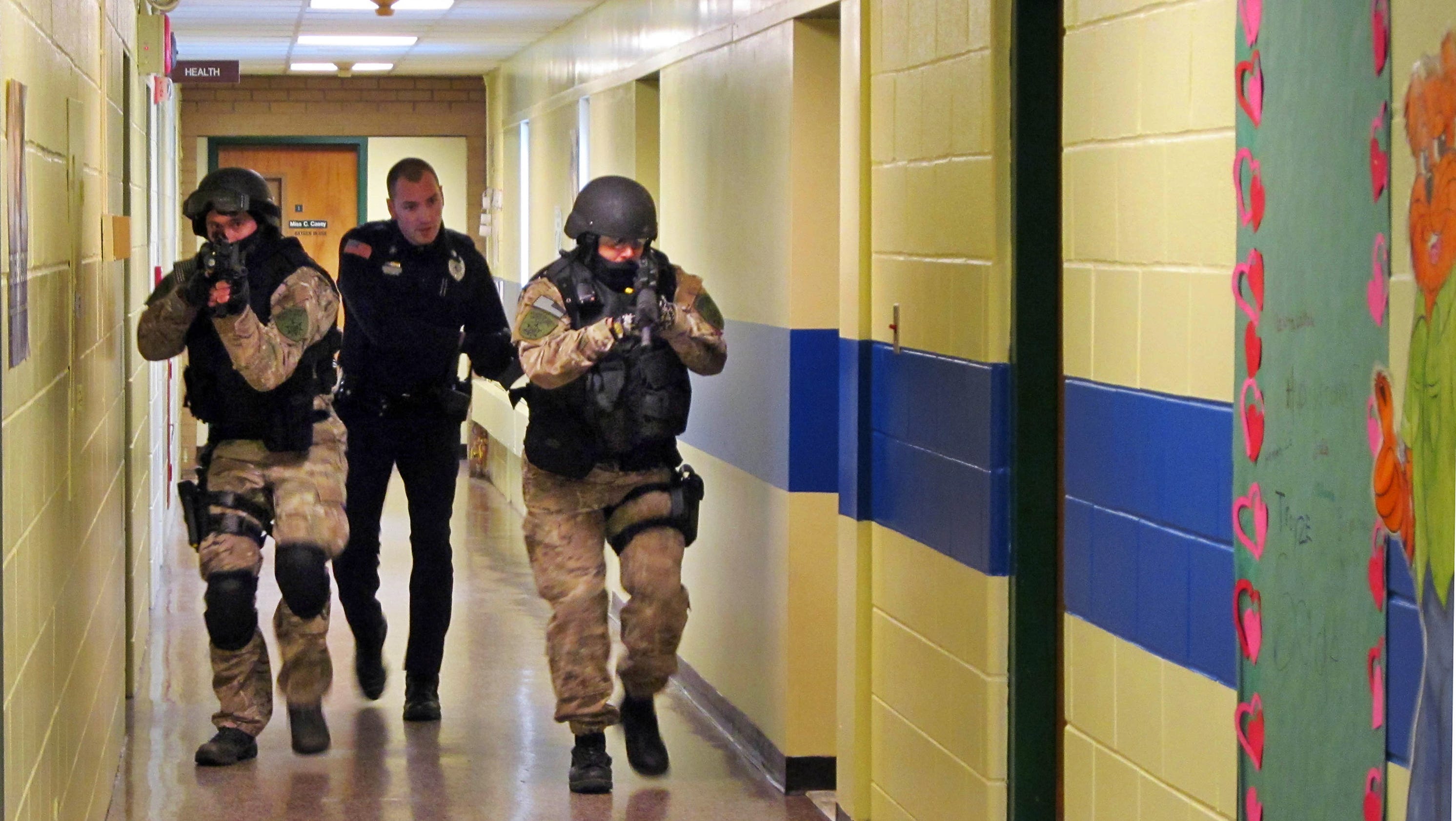Florida School Shootings: Lockdown Protocols And Generational Impacts

Table of Contents
The Evolution of Florida School Lockdown Protocols
Florida, like many other states, has seen a significant evolution in school safety measures in response to the increasing threat of school shootings. Early approaches focused primarily on reactive measures, such as simply locking doors during emergencies. However, the horrific events of recent decades have spurred the development of more sophisticated and comprehensive lockdown procedures.
Current lockdown procedures in Florida schools typically involve a multi-layered approach encompassing active shooter drills, communication systems, and clearly defined protocols for different types of emergencies. These protocols often include:
- Shelter-in-Place: Securing classrooms or designated safe areas within the school building.
- Lockdown: A more stringent measure involving locking all doors and windows, turning off lights, and remaining silent.
- Evacuation: Organized and controlled movement of students and staff out of the building to a predetermined safe location.
Strengths of the current system include: increased awareness among students and staff, improved communication systems, and more frequent drills. However, weaknesses remain, including potential communication breakdowns during chaotic situations, inconsistencies in training across different schools, and limitations imposed by the physical design of some older school buildings. Recent updates to protocols often follow significant events, aiming to address identified weaknesses and improve response times. Florida's protocols are frequently compared to those in other states, with ongoing efforts to adopt best practices and adapt to evolving threats.
Effectiveness of Current Lockdown Procedures
Analyzing the effectiveness of Florida's lockdown protocols in preventing casualties is a complex undertaking. While lockdowns can offer a degree of protection by creating a barrier between potential attackers and victims, their success is highly dependent on various factors. Several challenges affect their efficacy:
- Communication breakdowns: Delayed or unclear communication can hinder timely and effective responses.
- Insufficient training: Inadequate training for staff and students can lead to confusion and ineffective implementation of protocols.
- Building design limitations: Older school buildings may lack features that enhance security and impede rapid evacuation.
Statistics on school shootings in Florida and their outcomes vary depending on the source and data collection methods. Examining specific instances of both successful and unsuccessful lockdown implementations can provide valuable insights into the strengths and limitations of the current procedures. Expert opinions on the efficacy of current protocols are often divided, highlighting the need for ongoing evaluation and improvement.
The Psychological Impact on Students and Educators
The psychological toll of school shootings extends far beyond the immediate victims. Students and educators who experience or witness such events often suffer long-term mental health consequences, including:
- Post-Traumatic Stress Disorder (PTSD): Characterized by flashbacks, nightmares, and avoidance behaviors.
- Anxiety: Persistent feelings of worry, fear, and nervousness.
- Depression: Prolonged sadness, loss of interest in activities, and feelings of hopelessness.
These challenges can significantly impact academic performance, social development, and overall well-being. Fortunately, a range of resources and support systems are available, including school counselors, psychologists, and community-based mental health organizations. Early intervention and ongoing support are critical in mitigating the long-term effects of trauma.
Societal Impacts and Generational Trauma
The impact of Florida school shootings reverberates throughout entire communities, creating a ripple effect of fear, anxiety, and social disruption. This trauma is often passed down through generations, impacting family dynamics, community cohesion, and the overall sense of safety within schools.
- Increased fear and anxiety permeate school communities, leading to heightened security measures and a shift in social interactions.
- Changes in social relationships may occur, as students and educators struggle to cope with the emotional aftermath.
- Legislative efforts and school funding are often influenced by these events, leading to increased investment in school security and mental health services.
- Media coverage, while essential for informing the public, can also contribute to shaping public perception and potentially exacerbate anxiety.
Preventing Future School Shootings in Florida
Preventing future school shootings requires a multi-pronged approach addressing various contributing factors:
- Access to firearms: Stricter gun control laws and improved background checks can help reduce the availability of firearms to individuals who pose a risk.
- Mental health issues: Expanding access to mental healthcare services, early intervention programs, and reducing the stigma associated with mental illness are crucial.
- Bullying: Implementing anti-bullying programs and fostering a positive school climate can help prevent violence.
Potential preventative measures include:
- Specific legislative proposals focused on improving mental health services, enhancing school security, and strengthening gun control laws.
- Community-based initiatives aimed at promoting conflict resolution, fostering positive relationships, and educating young people about violence prevention.
- Parental involvement and education are essential in teaching children about responsible gun safety and providing emotional support.
- Early intervention programs for at-risk youth can help identify and address potential warning signs before they escalate into violence.
Conclusion
Florida school shootings have created a profound and lasting impact, necessitating a comprehensive reassessment of lockdown protocols and a proactive approach to preventing future tragedies. While current lockdown procedures play a vital role in immediate safety, addressing the underlying causes of violence and providing robust mental health support are crucial for long-term solutions. We must continue to advocate for improved safety measures, enhanced mental health resources, and stronger community engagement to create safer schools and support the well-being of students and educators. Understanding the generational impacts of these events is vital in developing effective strategies to prevent future Florida school shootings and foster healthier, safer communities. Let's work together to make our schools safer for all.

Featured Posts
-
 Donald Trumps Family A Look At His Children Parents And Siblings
May 17, 2025
Donald Trumps Family A Look At His Children Parents And Siblings
May 17, 2025 -
 Recession Resistant Stocks A Deep Dive Into Ubers Prospects
May 17, 2025
Recession Resistant Stocks A Deep Dive Into Ubers Prospects
May 17, 2025 -
 Acidente Com Onibus Universitario Numero De Vitimas Ainda Nao Confirmado
May 17, 2025
Acidente Com Onibus Universitario Numero De Vitimas Ainda Nao Confirmado
May 17, 2025 -
 Mariners Vs Athletics Injury Report March 27 30
May 17, 2025
Mariners Vs Athletics Injury Report March 27 30
May 17, 2025 -
 David Del Valle Uribe Representante De Reynosa En La Olimpiada Nacional
May 17, 2025
David Del Valle Uribe Representante De Reynosa En La Olimpiada Nacional
May 17, 2025
